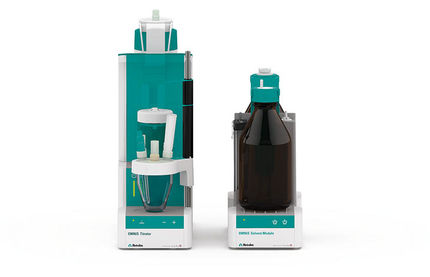To use all functions of this page, please activate cookies in your browser.
my.chemeurope.com
With an accout for my.chemeurope.com you can always see everything at a glance – and you can configure your own website and individual newsletter.
- My watch list
- My saved searches
- My saved topics
- My newsletter
Carbonate rockCarbonate rocks are a class of sedimentary rocks composed primarily of carbonate minerals. The two major types are limestone and dolomite, composed of calcite (CaCO3) and the mineral dolomite (CaMg(CO3)2) respectively. Chalk and tufa are also minor sedimentary carbonates. Product highlightCalcite can be either dissolved by groundwater or precipitated by groundwater, depending on several factors including the water temperature, pH, and dissolved ion concentrations. Calcite exhibits an unusual characteristic called retrograde solubility in which it becomes less soluble in water as the temperature increases. When conditions are right for precipitation, calcite forms mineral coatings that cement the existing rock grains together or it can fill fractures. Karst topography and caves develop in carbonate rocks due to their solubility in dilute acidic groundwater. Cooling groundwater or mixing of different groundwaters will also create conditions suitable for cave formation. Marble is the metamorphic carbonate rock. Rare igneous carbonate rocks exist as intrusive carbonatites and even more rare volcanic carbonate lava. Categories: Sedimentary rocks | Carbonate minerals |
| This article is licensed under the GNU Free Documentation License. It uses material from the Wikipedia article "Carbonate_rock". A list of authors is available in Wikipedia. |







